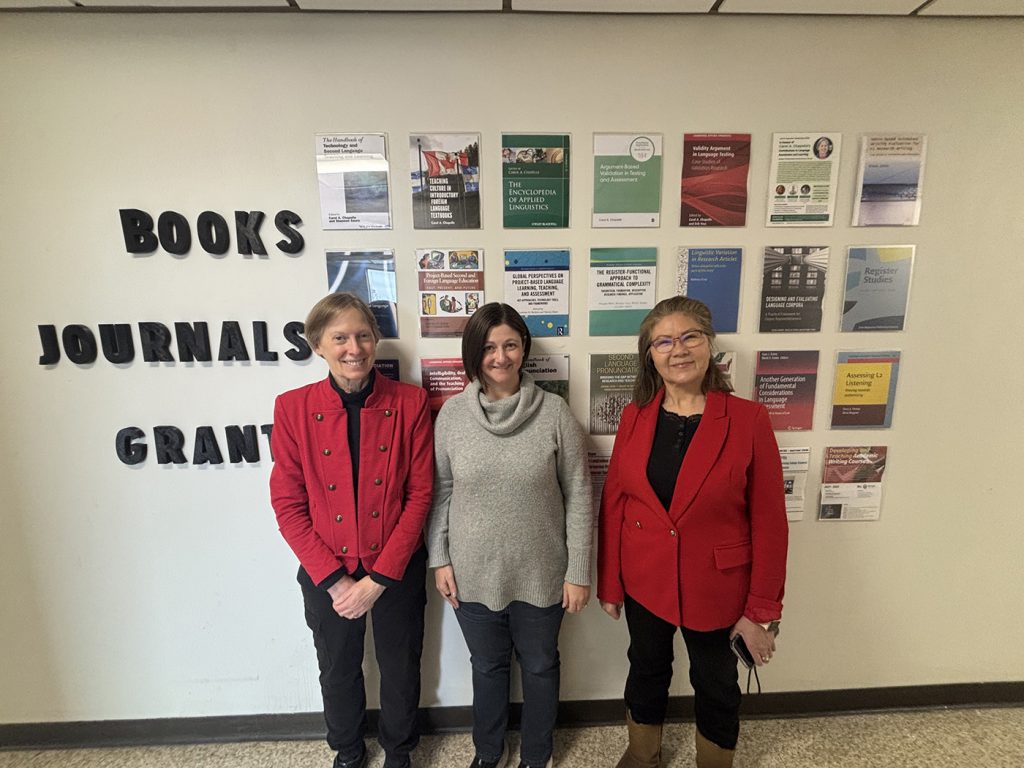
TSLL Conference organizers Carol Chapelle, Glubahar Beckett, and Bethany Gray
Photo by Din Keserovic
Over 1,700 participants registered for the 21st annual Technology for Second Language Learning (TSLL) Conference to find out. Hosted by the Department of English and programs in TESL and applied linguistics, the conference has gained a large following since it changed to a hybrid format in 2022. The accessibility of the event as well as the appearance of generative artificial intelligence (GenAI) has boosted interest in the annual event. The conference was held in the English department home, Ross Hall, for a local audience and streamed to participants in 88 countries throughout the world on October 26-28, 2024. The TSLL Organizing Committee, a group of faculty and graduate students, has managed the hybrid format and sudden growth.
Among the organizers, Carol Chapelle, Distinguished Professor in Applied Linguistics, has led the effort. She explained that the team builds the conference with contributions from the academic community. Many months before the conference, the organizers send out a call for proposals requesting submissions from researchers wanting to participate in the event. The team reviews the submitted proposals to guarantee that the presentations selected are high quality and present novel research. GenAI is the most prevalent topic in these presentations. Applied linguists are particularly interested in how these tools can be used to teach and hone the skills of language learners. The 2024 conference included 52 presentations in addition to six invited keynotes by leaders in the field, including two English department faculty members, Professors Gary Ockey and Eric York.
The conference participants were fascinated with the performance of large language models (LLMs) in GenAI and their use for language learning. These models can rapidly produce a vast amount of grammatically correct text in dozens of languages. A new English speaker could use ChatGPT, for example, to generate grammatically correct English, to improve the grammar of English that they input, or even to identify errors and explain how to improve input text. Chapelle also pointed out that learners can converse with GenAI on a topic of their choice, and this is useful in preparing to write.
Chapelle and the other faculty organizers, Gulbahar Beckett and Bethany Gray, selected some of the best presentations from the conference to include in a book, Exploring AI in Applied Linguistics, published online through the Iowa State University Digital Press. The volume, which has been downloaded over 17,000 times, gives a good idea of how applied linguists are engaging with AI. If you find yourself interested in the issues explored in the book, you are welcome to join us at the 22nd TSLL conference, whose theme is Building Knowledge of Generative AI in Applied Linguistics.
